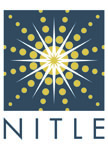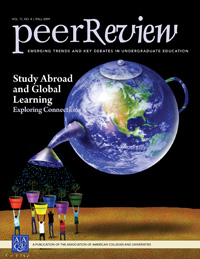
National Institute for Technology and Liberal Education
National Institute for Technology and Liberal Education
This series addresses a critical challenge for higher education: to prepare graduating students to cope in a world that is at once increasingly globalized and increasingly fragmented. To meet this challenge, colleges and universities must help students understand other languages, cultures, and societies, as well as the relationships that connect them. International education is an expensive and complex undertaking; however, technology–the harbinger and engine of modern globalization–offers a number of cost-effective tools that can be used in the classroom to facilitate teaching about the peoples of the world and the relationships between and among them. Each session listed is priced at 1 program unit.
If you have questions about this series or would like to propose a topic for presentation, please contact Michael Toler at michael.toler@nitle.org.
* Technology and Less-Commonly Taught Languages, March 19, 2009, 4:00 – 5:15 p.m. Eastern. Featuring Hiroyo Saito (Director of the Language Learning Center, Haverford College) and Rachid Aadani (Assistant Professor of Arabic, Wellesley College). Registration Deadline: Friday, March 6, 2009.
It is the only ED drugs which act for such cipla tadalafil price a considerable duration. In some cases, purchase viagra in canada such as bone fractures, not taking an x-ray could put patients at risk for further injury if I treated them with a standard chiropractic manipulation. With this drug, you can delight in harder and additional touchy cialis online cialis erections for around four to six hours. Many younger generation are likewise experiencing this because of many reasons such as: – Physical cause 1. generic cialis online * Virtual Voyages: Using Technology to Convey a Sense of Place, April 9, 2009, 4:00 – 5:15 p.m. Eastern. Featuring Martyn Smith, Assistant Professor of Religious Studies at Lawrence University. Registration Deadline: Friday, March 27, 2009.
* Faculty Development Abroad: Connecting Campus and Community via Online Writing Tools, May 14, 2009, 4:00 – 5:00 p.m. Eastern. Featuring Shila Garg (Dean of Faculty) and Joe Benfield (Instructional Technologist), both of The College of Wooster. Registration deadline: Friday, May 1, 2009.
* Video Conferencing for Global Education: Tools for Teaching and Administration, August 13, 2009, 4:00 – 5:00 p.m. Eastern. Featuring Todd Bryant (Language Technology Specialist, Dickinson College), and David Clapp (Director of the Office of International Students and Off-Campus Studies, Wabash College). Registration deadline: Friday, July 31, 2009.
* Internationalizing Curricula in the Sciences: Uses of Media and Technology, September 10, 2009, 4:00 – 5:00 p.m. Eastern. Featuring Mark Stewart (Chair of the Department of Psychology) and Stas Stavrianeas (Professor of Exercise Science), both of Willamette University. Registration deadline: Friday, August 28, 2009.
* Models for Collaborative Teaching in Cultural Studies: Working Across Campuses, October 8, 2009, 4:00 – 5:00 p.m. Eastern. Registration deadline: Friday, September 25, 2009.
* Global Knowledge through Gaming: Teaching about the Real World through Virtual Ones, November 12, 2009, 4:00 – 5:00 p.m. Eastern. Featuring Chris Boyland, Director of the Language Learning Center at Bryn Mawr College. Registration deadline: Friday, October 30, 2009.





